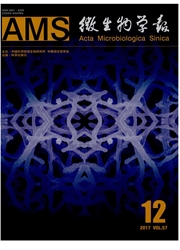

 中文摘要:
中文摘要:
嗜盐酶一般来自于嗜盐菌,它的主要特点是严格依赖体系中一定的盐离子浓度,可以在高盐环境中维持其结构稳定,并且能够抵抗高温、p H和有机溶剂存在下的变性,因此在高盐、水/有机和非水介质环境的催化中具有重要的应用价值。本综述从盐对嗜盐酶活性和稳定性的影响、金属离子和有机溶剂对嗜盐酶的影响几个方面介绍了嗜盐酶的特点。在总结蛋白质数据库(PDB)中已有嗜盐酶的结构和特点的基础上,对嗜盐酶的嗜盐机制进行了分析,认为嗜盐酶不同于非嗜盐酶的特点在于盐桥和氢键明显增多,含有一些特殊的盐离子结合位点并且常以低聚体的形式存在,表面酸性氨基酸含量明显增多。最后对嗜盐酶的分子改造和应用进行了简要的介绍。
 英文摘要:
英文摘要:
Halophilic enzymes are derived naturally from halophilic bacteria that survive in high salt environment, as it can maintain the structural stability of the enzyme only in high salt environment. These enzymes can withstand high temperature, pH and organic solvents, so they can be widely used for their catalytic activity in high salt, water/organic and non-aqueous environment. In this review, we address the effect of salt on the activity and stability of halophilic enzymes, and the role of metal ions and organic solvents on the halophilic enzymes. In addition, molecular modification and the application of halophilic enzymes were introduced.
 同期刊论文项目
同期刊论文项目
 同项目期刊论文
同项目期刊论文
 Identification and characterization of a new acid-stable endoglucanase with a new catalytic triad fr
Identification and characterization of a new acid-stable endoglucanase with a new catalytic triad fr Effects of salts on activity of halophilic cellulase with glucomannanase activity isolated from alka
Effects of salts on activity of halophilic cellulase with glucomannanase activity isolated from alka Structural Insight of a Trimodular Halophilic Cellulase with a Family 46 Carbohydrate-Binding Module
Structural Insight of a Trimodular Halophilic Cellulase with a Family 46 Carbohydrate-Binding Module 期刊信息
期刊信息
